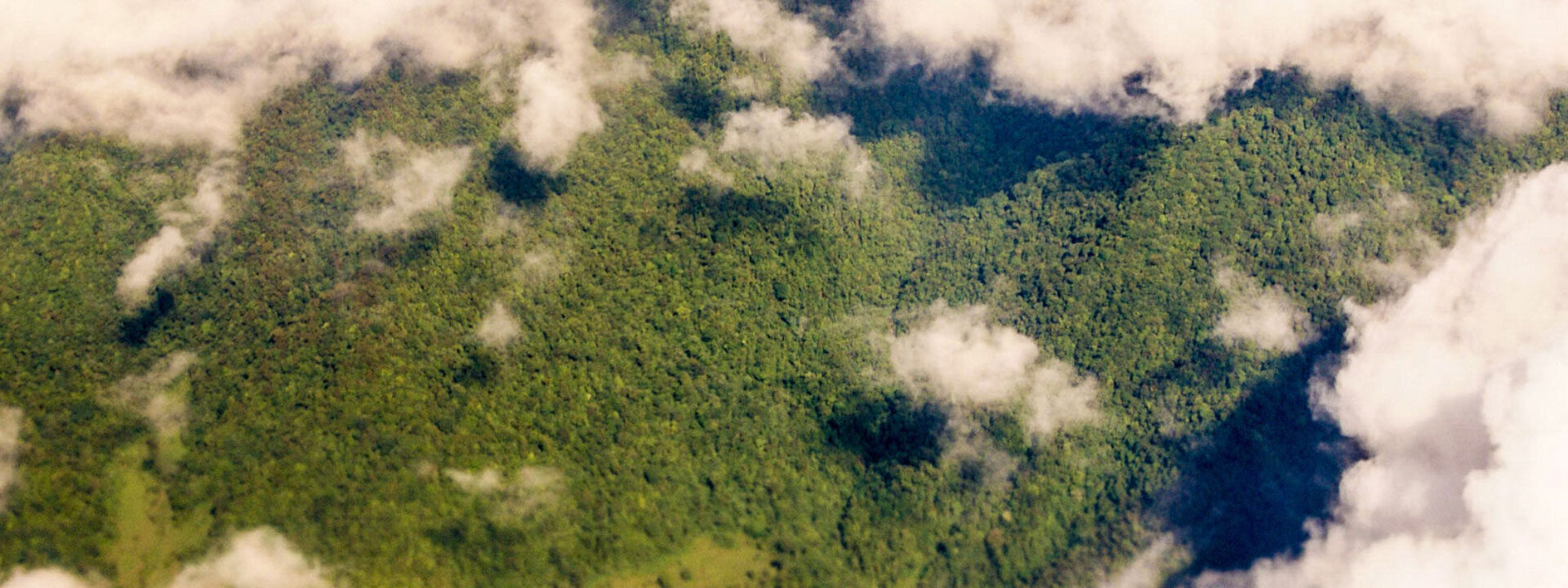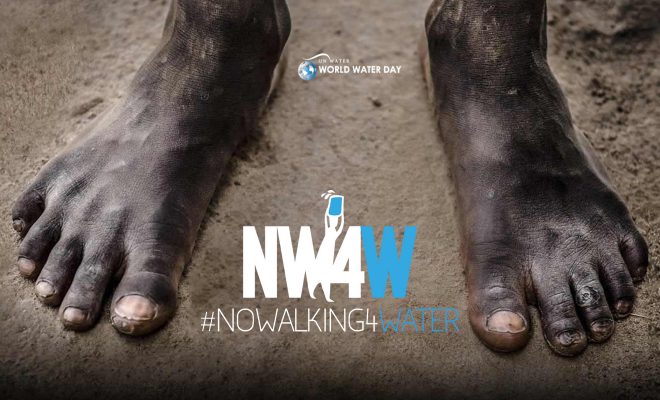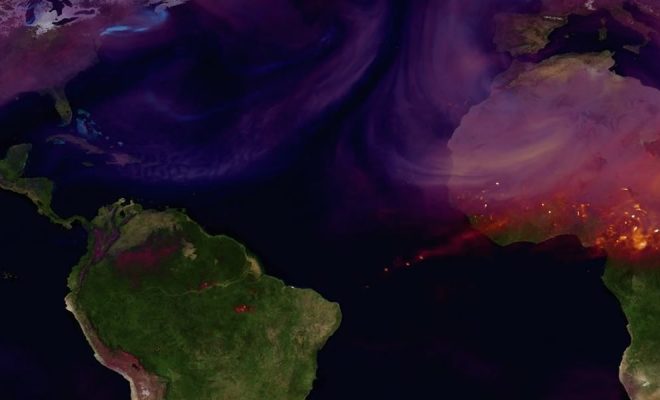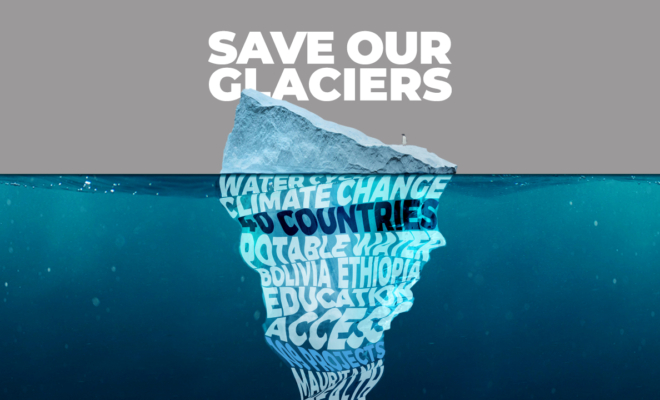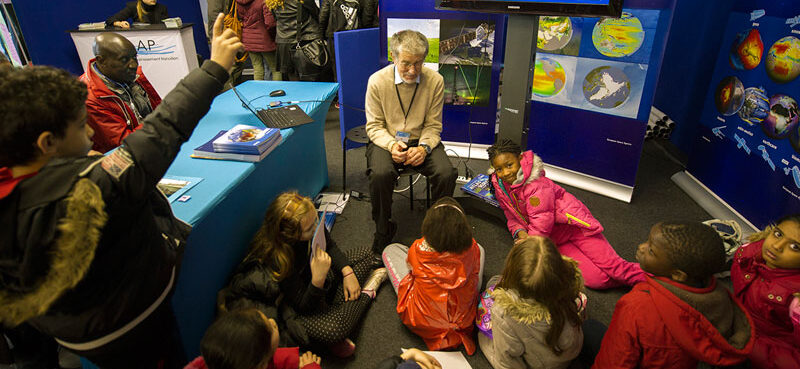
©XavierPopy
“We are facing a fight against climate change and it will be very difficult to adapt. And I do not want anyone telling us that we did not talk about it. We need to say it again and again, and we need to do it while being present as a group.” Jean Jouzel, president of Météo et Climat, the French association organising the International Weather and Climate Forum, refers to the initiative born to create a discussion forum and to disseminate the role played by Meteorology and Climatology as key sciences in the social understanding of climate change. On the 29th and 31st May, more than three hundred professionals from fifty countries will meet in Paris to address global warming from this perspective in which every one of us is an obliged actor.
The initiative of the International Weather and Climate Forum started in 2004 and in its thirteen editions its priority goal has been to foster the collaboration of the general public, civil society managers, scientists and in a very special way, weather presenters in the media. Meteorology and Climatology, nearly twin sisters, are the sciences that put us in direct contact with the effects the increase in the temperature of the atmosphere has on our relationship with water, as they study its cycle on earth and one of its more important elements: rain, a phenomenon without which we would not be able to live and whose slightest variation has an effect on an increasing number of people.
Understanding rain, understanding water
The first working theme of the forum is therefore the closeness to the general public; to convey the concerns of science in regard to the global problem affecting us with the aim of raising awareness of the importance of our daily actions in the behaviour of the atmosphere. This is not an easy task. To explain the popular sentence “when a butterfly flaps its wings in Moscow, a tornado breaks out in Arizona (the locations may be changed as desired)in an understandable manner implies an undeniable pedagogical skill; but educators have increasingly more scientific evidence to explain this interconnection that leads us to see the earth and ourselves as a whole.
It is necessary to integrate the knowledge of the atmosphere and the water cycle in education, and the good news is that increasingly more students and their families understand and feel that the water cycle is the cycle of our life, and that we should never forget that. In this sense, the International Weather and Climate Forum has given, throughout its short but intense life, increasing importance to the open houses, with informative and educational contents specially aimed at the younger generations.
The television weather presenters play a key role here. The forum summons them annually as undeniable spokespeople of climate sciences and their main disseminators. Each year, an increasing number of these professionals meet in Paris to exchange experiences and to debate on how to make their work contribute to getting us closer to the intimate life of the atmosphere, as our future depends on its health.
More good news in the climate world is that the number of people whose interest in meteorology goes beyond knowing what weather they will have on the weekend is increasing. We owe much to these media professionals who, in their aim to disseminate knowledge, create a base for the awareness of the climate change we are already experiencing; such as Mónica López, head of the Meteorology Department at TVE, and also attending the Paris forum, who declares: “Our spaces allow us to add such trendy topics as climate change. And we should do this, we should try to convey scientific studies, advances, even controversies, in our format, with our language, so that it reaches the audience. Personally it is my individual responsibility to instil the respect for our environmental and human setting in my children. A respect based on the responsible consumption of resources and on the understanding of and adaptation to the social changes climate change will bring in the future.”
One of the worst human consequences of climate change mainly affects those that already suffer the devastating effects of drought. Humanitarian solidarity involves all climate professionals and is another working theme of the International Weather and Climate Forum. This year the We Are Water Foundation attends as a guest to present the campaign #NoWalking4Water in this forum. Its goals are to raise awareness and to fight to provide access to water to more than 660 million people that lack it, most of whom are women and girls that live in areas where the availability of water will worsen due to climate change.
With its attendance, the Foundation aims to raise awareness of the dramatic relationship of water and climate change and to highlight the importance of the communication professionals when conveying their knowledge of atmospheric sciences. To this end, last year it organised, in collaboration with the IABM (International Association of Broadcast Meteorology), the international workshop Social Perceptions of Water and Climate, where it was presented how to make the conclusions of AR5, the last report of IPCC (International Weather and Climate Forum) more understandable to the general public. This document has been the base of the COP21 resolutions of last December. With its attendance in Paris, the Foundation sets forth its collaboration with the IABM, the association that represents the international community of weather presenters.
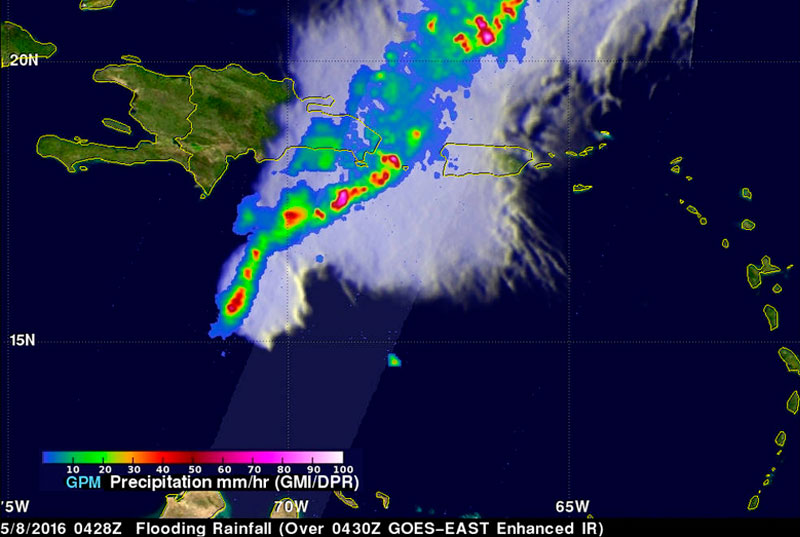
© NASA
Predictions: science saves lives
In the menacing future presented by global warming, the problems derived from the lack of water, such as drought, or its excess, such as floods, meteorology and climatology have the keys to help us understand and anticipate what awaits us. As expressed by Tomàs Molina, Head of Meteorology of Televisió de Catalunya, and also an attendee,“the aim of meteorologists is to save lives and goods” and to achieve this it is necessary to have the best forecasting and alert coordination systems.
This year, the international debate that traditionally takes place in the forum is Territories, laboratories of climate change, in which the scale of the policies of adaptation to climate change and the solutions will be discussed. The coordination of information is highly important here as it will allow the communication of menacing meteorological forecasts, such as droughts or floods, two phenomena that are increasing nowadays, to the crisis managers and the population.
In this sense, the projects of the foundation are real laboratories that provide first-hand information on the socioeconomic and human consequences of climate alterations. In the Anantapur region, where different projects are being developed together with the Vicente Ferrer Foundation, a change in the monsoon affects the food safety of millions of people. This is what happened, for instance, in 2012, when the winds that bring rain to this area where predicted for the 6th June by the Indian Meteorology Department; however, the humid monsoon arrived 10 days later, with scant and irregular rainfall, affecting farmers tremendously.
At the other end of the spectrum we find violent phenomena, such as typhoon Haiyan, which devastated the Philippines in 2013, bringing with it the enormous challenge of providing drinking waterurgently to those affected. The collaboration with World Vision was a very valuable management experience and it allowed the verification of the importance of a good alert system. As declared by Lia Cruz, weather presenter of the channel TV5 in the Philippines: “Part of my job consists of alerting people for their safety. It is not only telling them if it is going to rain or if the sun will shine, it is really telling them if they need to evacuate and leave their homes to save their lives.”
We will inform later on of the issues addressed at the 13th International Weather and Climate Forum and of the conclusions drawn by the presenters of the IBAM.


